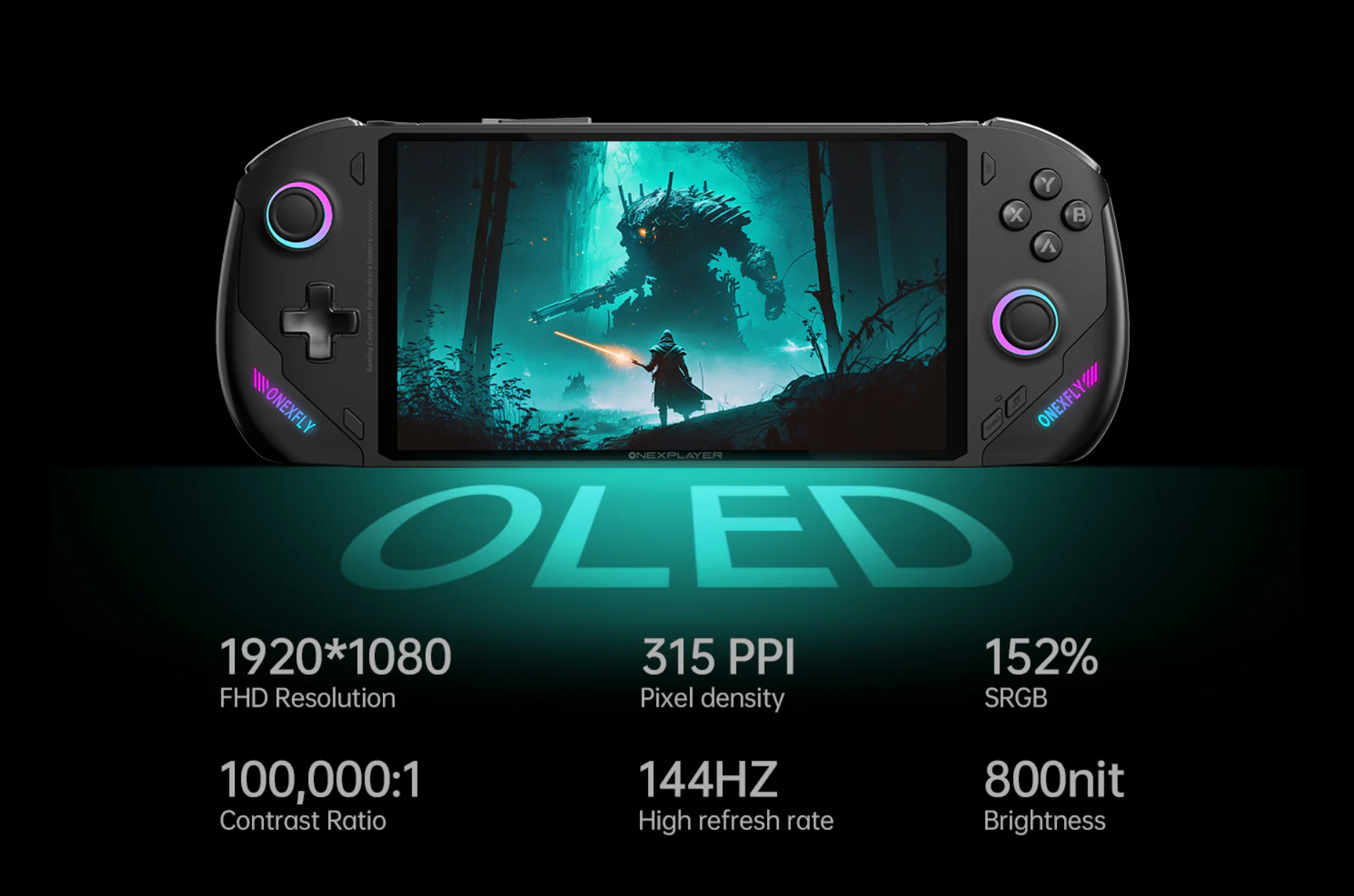“`html
- The OneXFly F1 Pro is set to be the inaugural handheld gaming PC featuring AMD’s Ryzen AI 300 series APUs.
- Multiple variants are expected to launch by late November 2024.
- This device is anticipated to surpass the performance of the rumored Ryzen Z2 Extreme handheld gaming PCs.
The market for handheld gaming PCs has experienced a resurgence since Valve introduced the Steam Deck, an economical choice that has inspired a wave of competitors. Among these, the OneXFly F1 Pro (priced at $1,099 / approximately £849 / around AU$1,660) aims to usher in a new era of portable gaming devices.
Equipped with AMD’s Ryzen AI 370 and 365 APUs, OneNetbook’s F1 Pro will be the first device utilizing the ‘Strix Point’ APU architecture specifically designed for handheld systems. As reported by VideoCardz, these processors will leverage AMD’s RDNA 3.5 technology, which promises enhancements in both performance and battery efficiency. Each APU boasts 12 Zen 5 cores and supports up to 24 threads, paving the way for impressive capabilities across all models.
While we await Asus’ next iteration of its ROG Ally series—rumored to feature the Ryzen Z2 Extreme APU—the F1 Pro provides valuable insights into what future Strix Point devices may offer in terms of performance benchmarks. Notably, it starts at $1,099 with configurations offering either 32GB or up to 64GB of RAM—a growing necessity for optimal gameplay experiences in titles like Returnal.
In addition to its robust APU specifications, the F1 Pro will showcase a stunning OLED display with a resolution of 1080p. This positions it as direct competition against Valve’s Steam Deck OLED model; however, given that Steam Deck OLED retails at $549 (£479 / AU$899), it may continue attracting more users despite potentially lower performance metrics.

Can the OneXFly F1 Pro Rival Other Handheld Gaming PCs?
There is little doubt that the OneXFly F1 Pro will outshine existing handheld options from brands like Valve and Asus due to its advanced Ryzen AI 300 series APUs. While there are no official announcements regarding other upcoming devices—such as details on Nintendo Switch’s successor—speculation suggests Lenovo and Asus might also adopt Ryzen Z2 Extreme APUs in their future offerings.
Although leaks indicate that Ryzen Z2 Extreme may not match up favorably against its Strix Point counterparts (the AI 370 and AI 365), AMD asserts that RDNA 3.5 could enhance battery longevity—a notable concern previously associated with models like ROG Ally X (which received positive feedback regarding battery improvements).
This emerging competition among portable consoles is thrilling; however pricing remains crucial for many gamers when making purchasing decisions. Currently lacking reviews on this new device means we must wait patiently before assessing aspects such as battery life efficiency and cooling capabilities—which ultimately influence overall value compared to established contenders like Steam Deck or potential successors from Nintendo Switch.
You May Also Be Interested In…
- Nintendo Switch Successor: All We Know So Far
- A Nintendo Switch Expert Shares Top Early Black Friday Deals
- The Best Handheld Gaming Consoles Available in 2024
Source
“`






